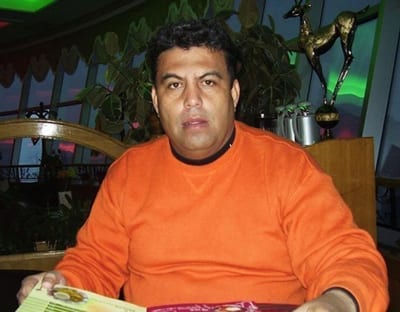Since April 2015, at least 14 Honduran union leaders and members have suffered threats or violence, including one who was disappeared and another one who was murdered, part of a campaign of intimidation against worker rights documented in a new report by the Union Network against Anti-Union Violence in Honduras.
Days after the report’s release, Nelson Geovanni Núñez Chávez eceived renewed death threats for helping banana workers form unions, according to the Honduras-based nonprofit ACI-Participa. Last November, Núñez Chávez was forced to leave his home with his family after repeatedly being followed and harassed.
Nuñez Chavez is an organizer for the Honduran agricultural workers’ union, Sindicato de Trabajadores de la Agroindustria y Similares (STAS), and host of the radio program, “Unionist on the Air.”
Four of the 14 union members and leaders who were victims of violence were active in the Network against Anti-Union Violence—a trend Honduran human rights activists say is a troubling development that may indicate those who actively seek justice for perpetrators of violence are targeted for attack.
Héctor Martínez Motiño, president of a local sectional union of Workers of the National Autonomous University of Honduras (SITRAUNAH), was murdered in June despite protection from the Inter-American Commission on Human Rights (IACHR). Environmental activist Berta Cáceres Flores, who was murdered last month in Honduras, also had IACHR protection. Observers say there was no police presence around either Martínez Motiño or Cáceres when they were killed. ACI-Participa has documented the assassination of 13 recipients of precautionary measures.
Two union leaders also faced death threats as they defended worker rights at agro-industrial plantations cited in a 2012 complaint filed by the AFL-CIO and 26 Honduran unions and civil society organizations over the Central American Free Trade Agreement (CAFTA). The complaint alleges the Honduran government failed to enforce labor rights under its labor laws.
A report released yesterday by an international fact-finding commission, “Justice for Berta Cáceres Flores,” cited the “ineffectiveness of the Honduran state’s human rights protection system, as well as a prevailing institutional practice that ignores the rights of the victims of human rights violations as active rights holders.”
Honduras passed a law six months ago that protects human rights defenders, but has not issued a regulation on its implementation or enforcement.
The Network against Anti-Union Violence in Honduras, a Solidarity Center ally, was created in 2014 to document violence against union members and push for an end to impunity for those who commit such crimes. No formal statistics on violence against trade unionists existed before the network formed.

